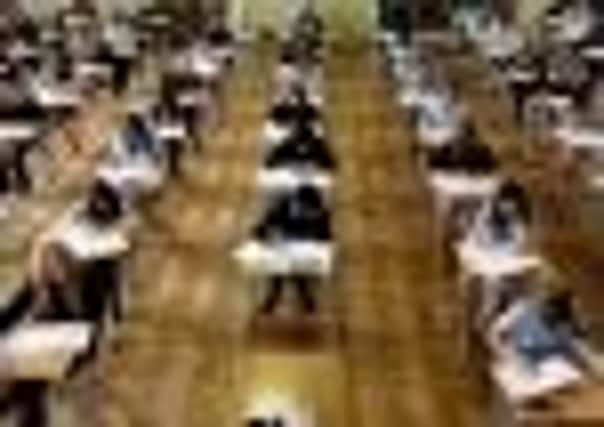Heads hit back at claims of over-marking


Two leading unions announced they have asked their members to provide evidence to show teachers did not inflate marks to ensure pupils achieved higher grades.
It comes after a report by England’s exams regulator, Ofqual, into the debacle claimed that teachers were guilty of “significantly” over-marking papers amid pressure to produce good results.
Advertisement
Hide AdAdvertisement
Hide AdIts chief regulator, Glenys Stacey, warned that teenagers were let down this summer by an exam system that is being abused in schools.
In the wake of the report, London headteacher Kenny Frederick challenged Ofqual to produce evidence of its claims of over-marking. She published feedback given to her school by exam board moderators which verified and praised its marking procedures.
The National Association of Head Teachers (NAHT) and the Association of School and College Leaders (ASCL) are urging their members to follow suit, and publish their own moderation reports.
Together, the two unions represent more than 45,000 UK school leaders. Exam board moderators check a random sample of pupils’ work each year to ensure standards are maintained.
Advertisement
Hide AdAdvertisement
Hide AdOfqual has said its investigation into this year’s GCSE English had found evidence of over-marking, mainly within acceptable “tolerance” levels, which would not have been altered by moderators. But this still had an impact on grade boundaries, once all results and marks were looked at.
NAHT general secretary Russell Hobby said: “Last week, Ofqual suggested that it was correcting a fault caused by teachers, yet there appears to be little, if any, evidence that this was the case.
“If the exam boards themselves are confirming in their moderator’s reports that teachers’ marks were accurate, perhaps we can close down this particular diversion and get back on track.
“Ofqual must now accept its responsibility and start working with the profession to ensure immediate restitution for pupils caught up in the saga and to find ways to ensure that a similar mess does not happen again.”
Advertisement
Hide AdAdvertisement
Hide AdASCL president Mike Griffiths said: “I’ve been appalled by the attack on the professionalism and integrity of the English teachers in my school and other schools around the country.”
In a response to Ms Frederick last week, Ofqual said: “You ask whether we have evidence of over-marking. We do, as we set out in the report.
“The issue is this: while over-marking was mainly within moderation tolerances, if a significant proportion of schools over-mark, even within moderation tolerances, there is an inevitable impact on grade boundary setting, as examiners set grade boundaries by judging the quality of the work.”
A national legal challenge has been mounted over the way grade boundaries were moved between January and June in English GCSEs.
Campaigners, including 11 councils from Yorkshire, say this left 10,000 students nationally receiving a D grade when the same work would have got a C had it been marked earlier in the year.